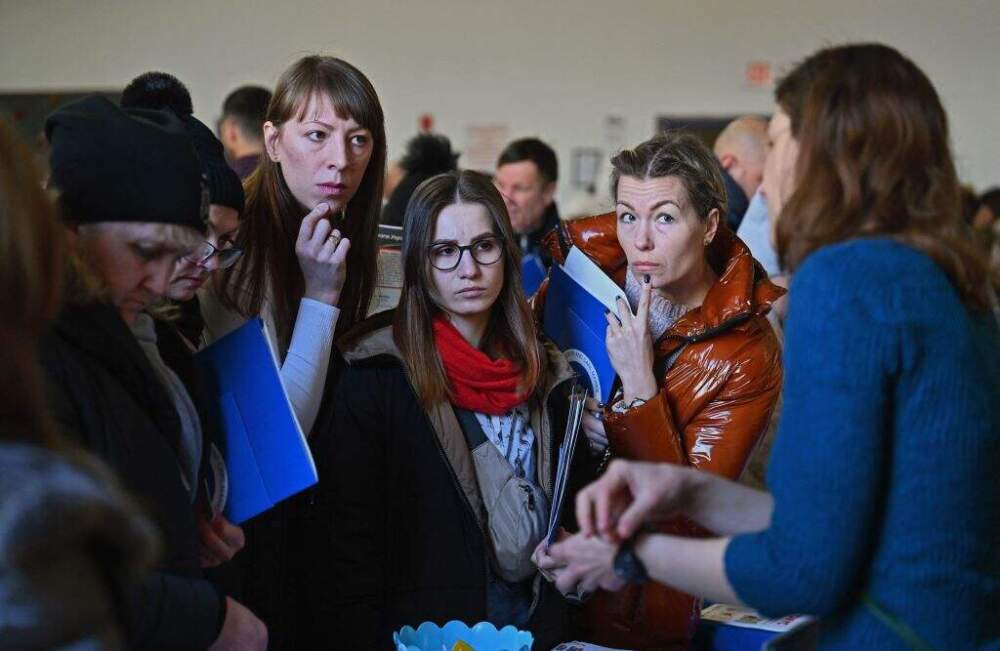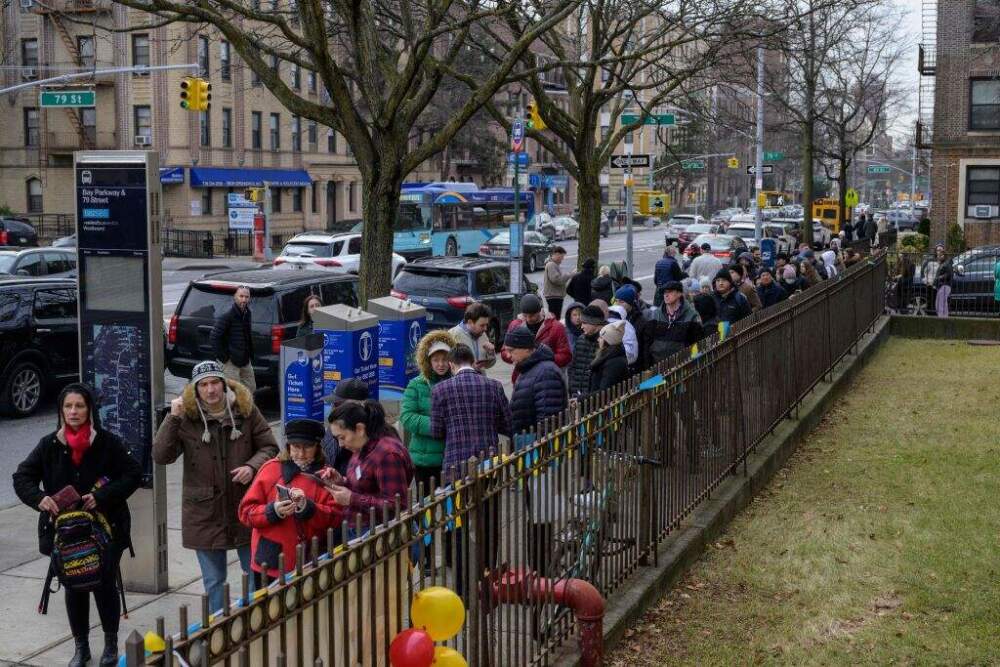Advertisement
Commentary
What gets lost in the immigration debate

As the leader of RefugePoint, a humanitarian organization that helps the most vulnerable refugees resettle, I receive a lot of calls from people desperate to help family members. This one was different.
Gregory Chudnovsky, a world-renowned Ukrainian mathematician called me two years ago, when Russia invaded Ukraine.
“You have to convince the U.S. government to help Ukrainians,” he implored. “You don’t understand — they will benefit America! Ukrainians are engineers, mathematicians. Bring in half a million or more!”
RefugePoint was starting to help separated Ukrainian families to reunite. Soon after Gregory's call, the Biden administration launched Uniting for Ukraine, a private sponsorship effort to bring in Ukrainians through a legal process known as "humanitarian parole." Sponsors arrange housing, financial and other support. So far, more than 175,000 have arrived. The U.S. expanded this kind of program to some Latin American countries, and also built up its refugee resettlement program.
The nonpartisan Congressional Budget Office (CBO) just weighed in on the economic benefits of programs like these, which have contributed to a significant increase in immigration over the past few years: $7 trillion will be added to the economy over the next decade.
The newcomers will reduce the federal deficit, help to alleviate labor-market pressure and have likely helped the U.S. avoid a recession that other countries, such as the U.K. and Japan, are experiencing.

Another new study from the U.S. Department of Health and Human Services found that over a 15-year period (2005-2019), the positive net fiscal impact of refugees and asylees on state and national economies was nearly $124 billion.
On a local level, refugees have revitalized American cities. Lewiston, Maine got national media attention last year for a terrible tragedy, but it's also a bellwether town for the impact refugees have on a local community and an important national example. In 2001, Somali refugees from across the U.S. began arriving in Lewiston, drawn by cheap rents and safe school opportunities. At that time, similar to today, anti-refugee and immigrant rhetoric emboldened xenophobia. A white supremacist group came to Lewiston to protest.
But entrepreneurial Somalis saw a chance to open businesses in a town that had declined since the 1970s with the loss of the mill industry. Restaurants and shops took root in the decaying town center that residents referred to as “the combat zone.” Today Somalis are integrated, and some, like Zamzam Mohamud, whom the mayor appointed to the school board, have become icons of community engagement. Crime dropped, according to the police chief. And a few years after Somalis began arriving, Inc. magazine named Lewiston one of the best places to do business in America.
Burmese, Somali and other refugees stemmed the tide of population decline in Utica, New York and contributed so much economically that the PBS NewsHour reported: “Utica’s commitment to resettle refugees … is also a pioneering economic tool for revitalizing the Rust Belt.” Bosnian refugees did the same for St. Louis, Missouri.
Smart leadership in the 21st century will mean recognizing that we need immigrants and refugees.
Forward-thinking leaders have taken note. Republican Governor of Vermont, Phil Scott, brings in refugees as part of a strategy to increase economic growth and expand Vermont’s workforce.
Today, more than 114 million people around the world are forcibly displaced, and some estimates put that number at a billion by mid-century, due to climate change. At the same time, Western countries are aging. And there’s significant demand in the health care and other industries for jobs — currently 9 million are unfilled in the U.S.
RefugePoint collaborated with the Canadian government and other partners like Talent Beyond Boundaries with their refugee talent catalog to help refugees find safe new homes and jobs through a labor mobility pilot project. Now the U.S. and other countries are imitating that program in recognition of the extraordinary and untapped talent pool that refugees represent.
The immigration debate should be rooted in these economic and labor market realities. Clearly more order at the border, planning for arrivals and support for our asylum system are desperately needed. The refugee program and these sponsorship efforts help by enabling people to arrive from abroad through a legal pathway that doesn’t require a life-threatening journey.
Smart leadership in the 21st century will mean recognizing that we need immigrants and refugees. It will be about managing forced migration by expanding our resettlement program and other legal pathways for those fleeing war and violence. Gregory Chudnovky had it right — and he might well have included refugees from beyond Ukraine.
When we are welcoming, a national characteristic rooted in our founders’ search for freedom from persecution and tyranny, we bolster the economy in vital ways and strengthen the social and economic fabric of our towns and cities. We also hold up a moral torch for the world to follow.
